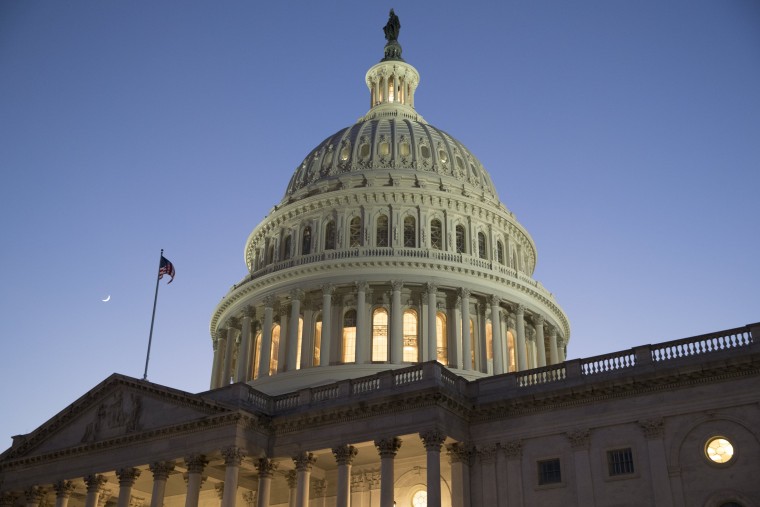In the coming months, Democratic voters will get to know a whole lot of Democratic presidential candidates, each of whom will have a slate of progressive ideas they'll promise to pursue if elected. The party's rank-and-file supporters will no doubt have plenty of questions about which are the best ideas, whose platforms are the most consistent with their records, and the degree to which the candidates' agendas are in line with party orthodoxy.
But there's another question, currently lingering in the background, that the party should probably keep in mind: how exactly do these candidates intend to advance their ideas in a Senate that requires 60-vote supermajorities for everything?
Politico helped get the ball rolling on this debate with a report overnight:
Democrats have a lot of big ideas if they win back the White House and Congress in 2020. But it's not clear they are willing to do a key thing needed to implement them: eliminating the filibuster.Senate Democrats pursuing the White House are split on whether to even consider getting rid of the chamber's longstanding supermajority requirement. The debate is heating up as the race for the presidential nomination begins and will largely determine whether the party can enact a "Green New Deal," Medicare-for-All and other top priorities on the left.
I realize that for much of the public, the phrase "fights over congressional legislative procedures" isn't exciting. No one has ever suggested "filibuster reform" is click-bait.
But Democratic presidential candidates who are presenting progressive ideas should be able to explain how they intend to turn their platform into law. Maybe they're counting on Democrats having a 60-seat majority in the Senate. Maybe they expect to persuade several Senate Republicans to support their ideas. Maybe they intend to support statehood for Puerto Rico and the District of Columbia, raising the possibility of four additional Dems in the chamber.
Or maybe they hope to exploit the budget reconciliation process -- which Republicans used to pass tax cuts, and which they very nearly used to tear down the Affordable Care Act, but which can't be used for everything.
If none of these things happen, a Democratic president's idea, regardless of merit or popularity, will die. It's simply a matter of arithmetic.
All of which leads to the related possibility of changing what it takes to legislate in the Senate -- or more to the point, changing it back to the way the Senate used to operate, before filibuster abuses became the norm.
This report came out around Thanksgiving, so it didn't cause as big a splash as it probably should have, but it's something Democrats should probably keep in mind.
Former President Obama on Tuesday slammed the Senate's use of the filibuster, a tactic that requires 60 votes for any legislation to move forward that is often used to obstruct bills from proceeding."The big challenge that we faced was the filibuster. And it's a weird thing because it's not something that the average American spends a lot of time thinking about," Obama said on CNN's "Axe Files" podcast. "It, interestingly enough, doesn't get talked about or examined much even by the pundits. It's a given that this extra-constitutional thing that says you have to have 60 votes to get anything passed.""Adding the filibuster, I think, has made it almost impossible for us to effectively govern at a time when you have at least one party that is not willing to compromise on issues," he added.
(This is, incidentally, one of the few things Obama and Donald Trump seem to agree on.)
It is a certainty, given the state of Republican politics, that if a Democratic presidential candidate wins next year, he or she will face the same dynamic Obama did. And while Obama's party briefly had a 60-vote majority in 2009, the odds of Democrats reaching that threshold again anytime soon are ridiculously remote.
I imagine many Dems will balk at dramatic reforms, not because of timidity, but because they're fearful of what Republicans would do if given the same partisan powers. Those concerns are understandable.
But the underlying question for Democratic presidential candidates remains the same: if the current filibuster rules remain intact, indefinitely, how do you intend to govern?
